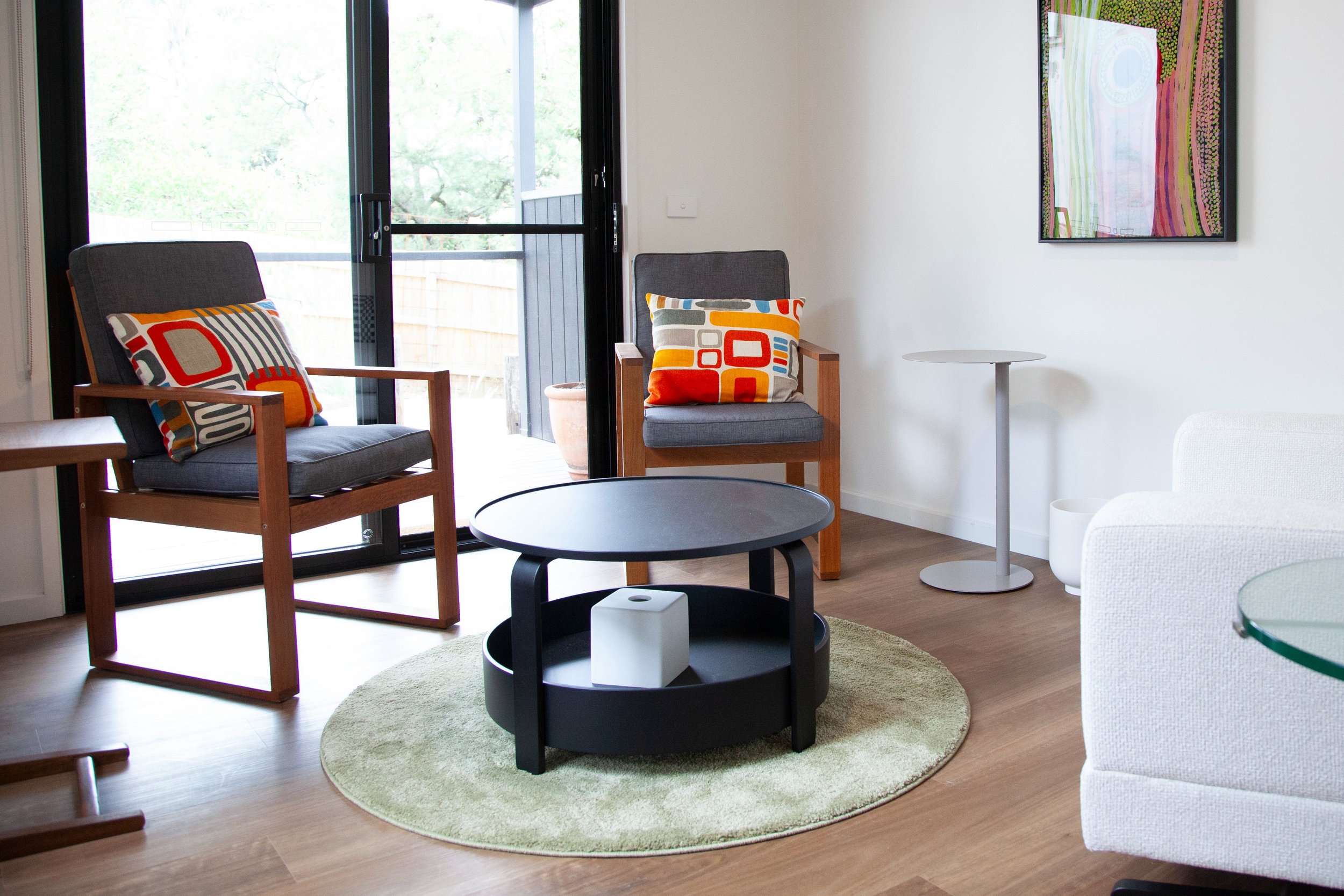
Supporting dementia carers
The physical, mental and emotional demands of caring for someone with dementia can be high, extreme even.
Creating some space to make time to speak with someone who can support you can be invaluable in helping you cope.

Does this sound like you?
You take pride in being a compassionate caregiver to your loved one with dementia.
You’re committed to protecting their dignity, valuing their selfhood, and recognizing both their vulnerability and their strengths.
At the same time, you have your own concerns—about caregiving, about doing the right thing, and about looking after yourself.

I’m Ray Daniels
Founder of Third Chair Counselling
I provide a compassionate space where you can talk, be heard, and find ways to navigate this journey.
In our sessions, you will learn effective communication techniques and coping strategies to help you meet dementia’s daily challenges.
There is a third chair in my counselling studio to represent the person with dementia being cared for.
While your needs and concerns are paramount, valuing those of the person you care for is fundamental to working proactively together.
Why? Respect for you and for the personhood of your loved one is at the heart of the Third Chair counselling approach.
Are you?
-
A partner
As life changes and routines adjust, you may find yourself pushing back against the impact of dementia to sustain your connection with your loved one. It’s often hard going because in so many ways this is unknown territory.
While each situation is unique, you may receive well-meaning advice, but you could find it confusing and contradictory and not necessarily relevant to your circumstances.
Maybe your feelings are a mix of sorrow and anger, or some other emotion. Counselling can help you to combat the overwhelm and find strategies directly relevant to your reality.
-
An adult child
Navigating the emotional landscape of caring for a parent with dementia can be deeply confronting.
You may find yourself in a role reversal. Suddenly you find yourself the caregiver instead of the cared-for, and may be longing for the relationship you once knew. Balancing love, responsibility, and the grief of change is no small task.
You may be stressed by conflicting demands on your energy and time if, as well as caring for your parent with dementia, you have a partner and children of your own to look after. In this generational sandwich-situation, practical skills to better manage your resources may become a focus for counselling support.
-
Another relative or friend
Are you a sibling, grandchild, cousin, niece, nephew, neighbor, or friend of someone living with dementia? You may not be their primary carer, but you still want to support them in a meaningful way.
Too often dementia caring is a lonely road to travel. Joining with the primary caregiver may be welcomed and beneficial.
We’ll explore your unique situation and help you find ways to offer appropriate support to the person with dementia, their primary caregiver, and to yourself. Because every act of care matters.

Third Chair Counselling offers you, a caregiver for a person living with dementia, a safe space where you can explore your thoughts and feelings.
Online, or in person, my purpose is to provide support as you navigate the complexities of caregiving.
We will focus our attention on your needs and those of the person you are caring for. From that starting point, we will respond to your concerns and issues together.
In our sessions, you will learn effective communication techniques and coping strategies to meet daily challenges resourcefully.
This is an environment of compassion and understanding where you can express your fears, frustrations, and hopes.
The goal at Third Chair is to help you find your way through the challenges and changes dementia brings.
Working with you
I start with the assumption that there is one thing above all others that I will do throughout your first session with me: listen to you with undivided attention.
How likely is it that all you need is this attentive listening?
It’s fine if that’s the case.
However, when concerns and distress arise while telling your story, I am ready to take on the role of counsellor.
I draw on a range of counselling approaches, including Logotherapy, Acceptance and Commitment Therapy (ACT), Cognitive Behavioural Therapy (CBT), Narrative Therapy, and Reality Therapy, all integrated within the Support Framework I’ve designed to guide our work together.
Wherever you are in the progression of dementia caregiving, we will work in a way that makes sense for you.
FAQ
-
How long is a counselling session?
A Third Chair Counselling session is usually fifty minutes long. However, we acknowledge that time can be scarce for carers, so we’d like to offer a 25-minute online session for those who can’t attend a full-length session.
-
How much does a session cost?
The cost of a fifty-minute session is A$90. The charge for our trial 25-minute session will be A$45.
Invoices will be emailed to you on the Friday of the week of your session.
-
What happens if I need to cancel my session?
Please give as much notice as possible if you need to reschedule. Cancellations under 24 hours may attract a charge.
-
How do I contact you outside of a session?
I prefer email, phone calls and texts only for appointment-related matters. However, if available to respond to an urgent matter that arose between appointments, I would do my best to help.
-
I have been diagnosed with early onset dementia. Could the Third Chair approach help me?
Maybe. We could focus on helping you talk about your life and your concerns. Then we’d take a look at what you could try to do next. That way we can figure out the answer to your question together.
-
My partner or family member has been diagnosed with dementia. Could I bring them for counselling together?
Unfortunately, I cannot help because I have not been trained in the specialist counselling areas of couples and family counselling.


